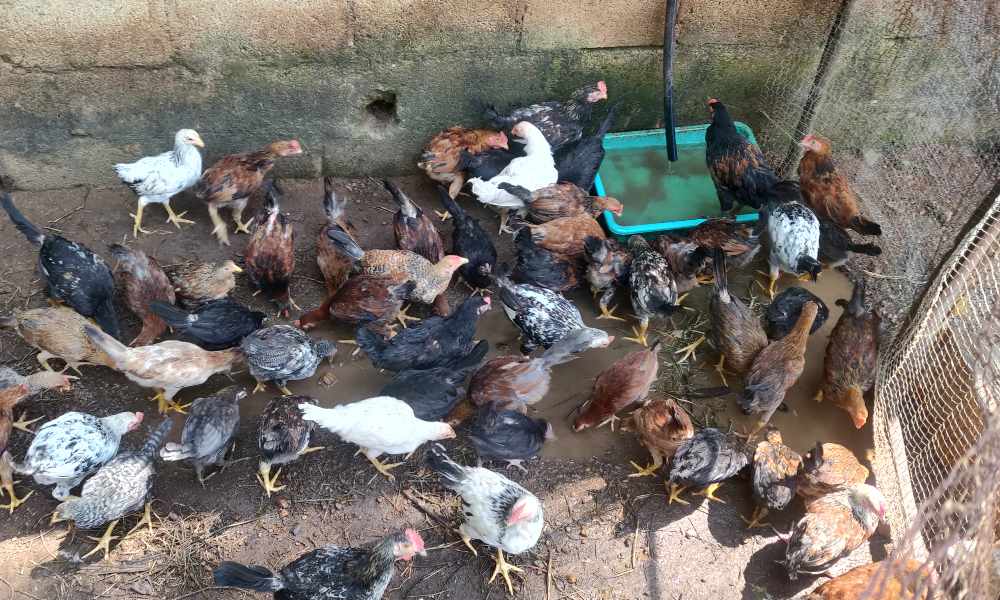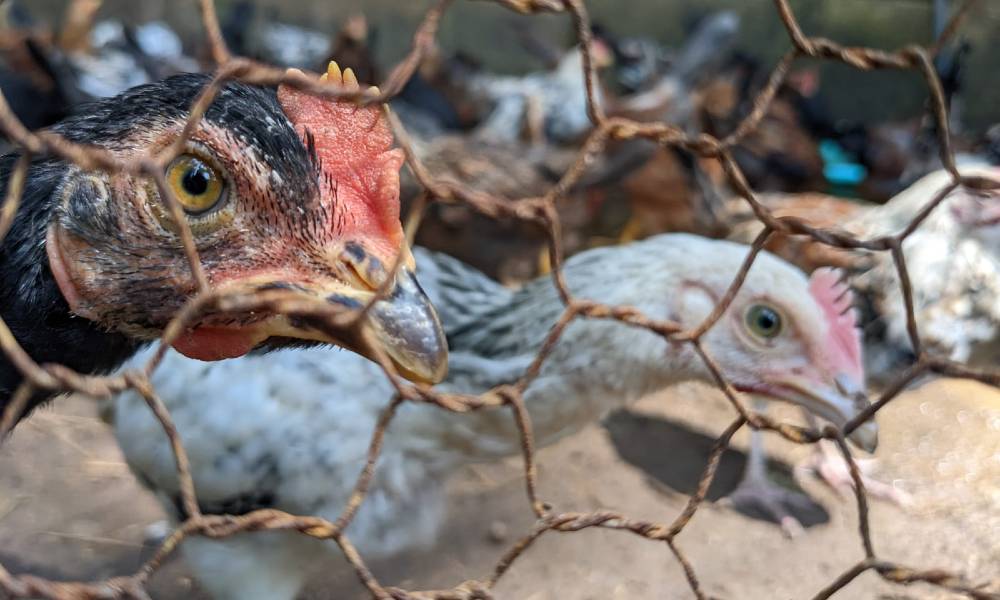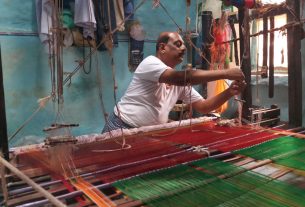Poultry farmers in Karnataka worry of fall in production due to increasing temperature in the state.
Poultry farming in Karnataka is expected to come under severe pressure with a predicted increase in heat waves in the state. Studies indicate, and poultry farmers agree that any temperature above 30 degrees Celsius increases the mortality rate among chickens and egg production falls.
Raghu, a poultry farmer in Hebbal who grows the broiler variety, said that the rising heat is a problem that he is worried about, as it will impact his farming output. He said, as there is no way for the chickens to let out heat like how humans or other animals do, heat must be reduced to the maximum extent. “During April to May every year, the chickens here face a mortality rate of three percent. I do not know if the rate will increase when there are additional heat waves.”
Data shows that many districts in Karnataka are facing heat waves, with daily temperatures crossing 40 degrees Celsius, and it is expected to rise further.
Manjunath, a poultry farmer in Hebbal, who grows the layer variety, said that the best temperature for healthy development of chickens is around 30 degrees Celsius, and heat strokes are sure to come above 40 degrees. “In normal summers we experience a five percent to eight percent fall in egg production, and during excessive heat, it will fall drastically,” he said.
Studies with simulated heat radiation of 40.5 degrees Celsius have shown that an eight-week-old male broiler chickens has a mortality rate of 40 percent. The mortality rate of chickens across districts in Pune went up to 20 percent due to heat waves that swept the city earlier this year. A few years ago, excessive heat caused a heavy toll on the poultry industry in Telangana and Andhra Pradesh.

The mortality of the chickens and the fall in the production of eggs is very subjective and it depends on the management, Raghu said. “With good management like water sprays, proper feeding for the chickens which will affect its water intake, and other measures, the mortality rates can be reduced,” he said. But despite these measures, heat waves will have a negative impact on poultry, he added.
Manjunath said, Environmental Control (EC) could be a good way of protecting chickens from excessive heat, which would cost Rs. 900 to Rs. 1000 per chicken. “EC is helpful in maintaining the internal temperature in optimum level, through proper airflow,” he said.
Dr. B. Umakantha, a scientist with the Karnataka Poultry Farmers and Breeders Association (KPFBA), said that poultry farmers in the coastal and the northern districts of the state are prone to suffer from rising heat. “These birds have no sweat glands, so the process of conduction, convection, and evaporation must be done through interventions to let the heat out,” he said. Among the deep litter rearing and the cage rearing, the latter poses a greater threat as that kind of rearing does not let out the heat from the bird properly, he added.
Nagaraju, member of the Karnataka Poultry Traders Association said that till now there has been no impact on the trade of poultry, but the heat may be a cause of concern. Karnataka is ranked fifth in India in terms of production of eggs and meat, and poultry farming in the state employs about six million people directly and indirectly.
Measures like regulating feed intake, decreasing bird density, and increasing Vitamin C, sodium bicarbonate, and energy intake can be helpful to the birds during excessive heat, Umakantha said. Despite all these measures, rising heat in the state will take its toll in poultry, he added. “Extreme climatic conditions due to global warming are increasing the problems faced by the poultry industry,” he said.




